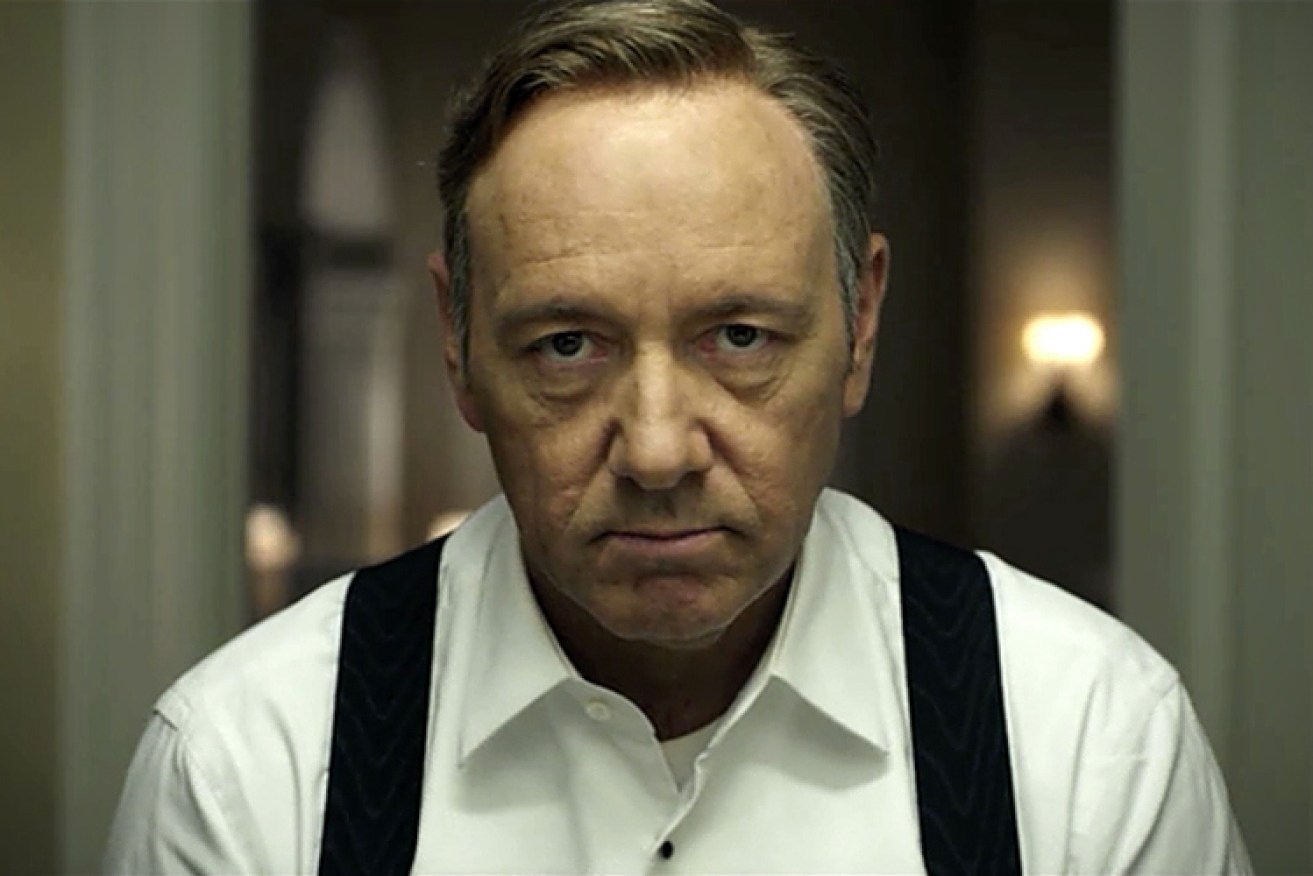Why a movie tax will make even more of us pirates

Shows like House of Cards have given Netflix original content a respected name.
Australian consumers and content producers are among those likely to be worse off should Joe Hockey succeed in his efforts to extend GST to online video-on-demand services like Netflix.
It is easy to see why Mr Hockey and his state treasurer counterparts have reportedly agreed to this move.
That doesn’t mean it’s a good idea.
• How to bypass Foxtel to watch Game of Thrones
• Netflix Australia has arrived – here’s what you need to know
• Australia’s income tax: is it really so high?
The parlous state of the budget, worsened by the falling iron ore price, means that the government is desperate for new revenue sources. Mr Hockey claims that extending the GST to VOD services will “raise billions”.
It may provide a means to claw back some of the millions of dollars in tax revenue lost through the aggressive tax avoidance and minimization strategies of multinational corporations like Apple and Google. But it will also increase the price that consumers pay for online services as the newly GST-liable companies inevitably pass on the hike in their costs.
The extension of the GST could throttle the nascent VOD services that Australians have embraced so warmly in recent weeks. The imposition of regulations has the potential to hobble the emerging industry and discourage other innovative services from launching here.
Existing regulations, technological restrictions and commercial arrangements had already delayed the Australian launch of Netflix’s online streaming service until last month – a mere seven years after its American debut.

Many Australian consumers have been enjoying Netflix’s and Stan’s ‘first month free’ introductory trials, but they will soon end. It is by no means guaranteed that prospective subscribers will happily absorb an early – and unexpected – price rise.
Television shows, software, movies, music and books already tend to cost more to stream or download in Australia than overseas. Consumers hardly need this disparity to be made worse by the imposition of an additional 10 per cent price rise.
Two-thirds of respondents to an online copyright infringement survey conducted by the Communications Alliance in late 2014 agreed that if pricing were cheaper and fairer, fewer people would download illegally. By the same token, if pricing is more expensive and inequitable, the number of Australians ‘pirating’ content is unlikely to diminish.
Consider the fact that last week’s big win for copyright owners over file sharers in the Dallas Buyers Club case does not seem to have deterred the thousands of Australians who downloaded the first four episodes of Game of Thrones season five prior to its initial broadcast on Monday.

Consider too the fact that it is becoming ever easier to legally watch services that are technically only available overseas. Guides to using Virtual Private Network (VPN) services are proliferating.
These services enable consumers to get around territorially-based technological and commercial restrictions on access to films and television programs. And as Communications Minister Malcolm Turnbull helpfully points out on his website, it is not illegal under the Copyright Act to use a VPN for this purpose.
If you are one of those Australians who are happy to pay for content, but who resent being ripped off by either Australian services or the government, you might be asking yourself why you would pay for an overpriced local option with a limited content library when you can lawfully access a world of content for free or at a reduced cost?
One answer might be a sense of patriotic obligation to Australian film and television producers. The online video services that recently launched here have provided a welcome – if as yet relatively small – windfall for Australian copyright owners as they compete for the rights to Australian content.
And, if overseas experience is any guide, they are likely to start investing in content production here in the future – but only if viewers sign up in large enough numbers to make the services viable.
If viewers are discouraged by the increasing cost, or seduced by how easy it is either to download content illegally or to access overseas equivalents legally, then these local services could collapse or withdraw from the Australian market. This would be a major blow for Australian producers and consumers alike.
The extension of the GST to online video-on-demand services will not level the playing field.
Instead, it will tilt the balance towards overseas and illegal sites, and convince more Australians to play away from home.









